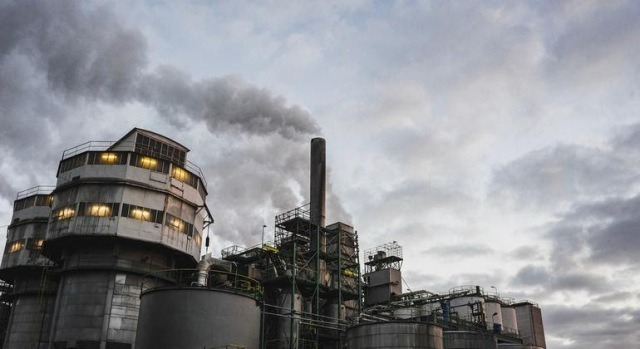The World Meteorological Organization (WMO) issued a stark warning in its latest report published this week, revealing a distressing surge in greenhouse gas emissions. According to the Greenhouse Gas Bulletin, emissions reached an all-time high in 2022, signaling a distressing upward trajectory with no apparent signs of abating.
The report’s release precedes the UN climate change conference, COP28, slated to commence in Dubai in just a fortnight.
Attributing the bulk of these emissions to fossil fuels — coal, oil, and gas — the WMO underscores the detrimental impact on our planet. These gases trap the sun’s heat, escalating global warming and contributing significantly to climate change.
Of particular concern is the unprecedented surge in the global average concentrations of carbon dioxide (CO2), surpassing pre-industrial levels by a staggering 50 percent in the previous year. Alarmingly, this trend persisted and continued its ascent into 2023.
The rise isn’t isolated to CO2 alone; methane concentrations also spiked, and nitrous oxide, another prominent gas, witnessed its most substantial year-on-year increase on record from 2021 to 2022.
Expressing deep concern, Petteri Taalas, the Secretary-General of the WMO, lamented the disheartening direction despite repeated warnings from the scientific community and numerous climate conferences. Taalas emphasized that this trajectory could push global temperatures well beyond the targets set by the Paris Agreement by the century’s end—raising temperatures by more than 1.5 degrees Celsius.
The repercussions are dire. Countries are predicted to face heightened occurrences of extreme weather events, including intense heatwaves, rainfall, accelerated ice melting, rising sea levels, and detrimental changes in ocean heat and acidity.
Taalas emphasized the urgency to curtail fossil fuel consumption to mitigate these impending socioeconomic and environmental costs.
The WMO clarified that nearly half of CO2 emissions linger in the atmosphere, while over a quarter are absorbed by oceans, and just under 30 percent by crucial “land ecosystems,” like forests.
Highlighting the gravity of the situation, Taalas emphasized the irreversible nature of accumulated CO2, warning that even rapid reductions to net zero emissions wouldn’t immediately reverse the temperature levels observed. The Earth hasn’t experienced a comparable concentration of CO2 for 3 to 5 million years, leading to significantly warmer temperatures and substantially higher sea levels.
In response, the WMO launched an initiative aimed at establishing continuous global monitoring of greenhouse gas concentrations and fluxes. The goal is to enhance comprehension of climate change dynamics and bolster efforts for effective mitigation strategies.
With no easy fix in sight, the report underlines the critical need for immediate and concerted global action to address this alarming trajectory in greenhouse gas emissions.

